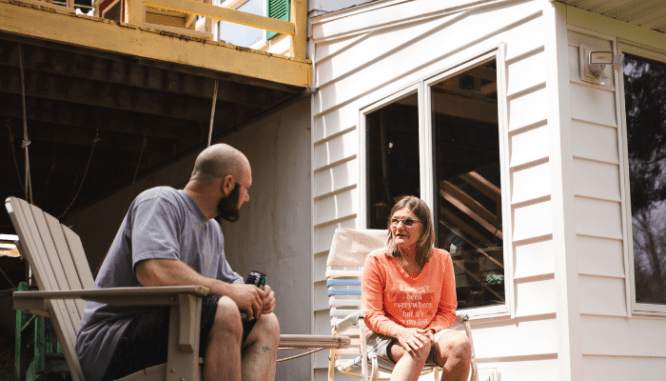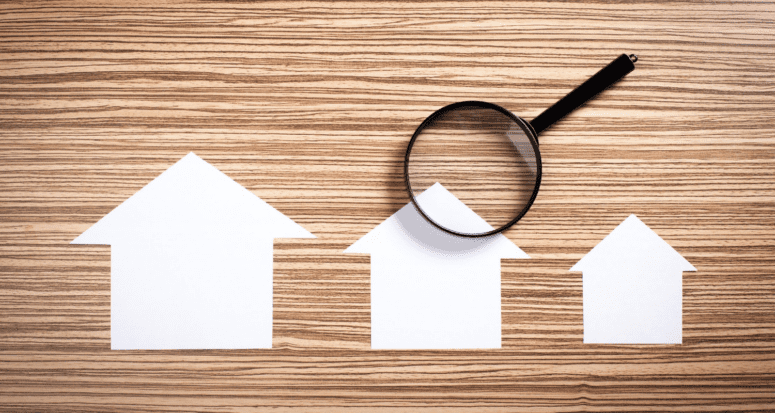Who Pays for the Home Inspection When You’re Buying a House? (Is It Me?)
- Published on
- 14 min read
-
Courtney DuChene, Contributing AuthorCloseCourtney DuChene Contributing Author
Courtney DuChene is a freelance writer covering business, personal finance and real estate, based out of Philadelphia.
-
Amber Taufen, Former Managing Editor, Buyer Resource CenterCloseAmber Taufen Former Managing Editor, Buyer Resource Center
Amber was one of HomeLight’s Buyer Center editors and has been a real estate content expert since 2014. The former editor-in-chief at Inman, she was named a “Trendsetter” in the 2017 Swanepoel Power 200 list, which acknowledges “innovators, dealmakers, and movers-and-shakers who made a noteworthy impact over the last year” in real estate, and her assessment of revenue and expenses at the National Association of Realtors won a NAREE Gold Award for “Best Economic Analysis” in 2017.
Before you get the keys and move in, there are a number of important steps in the closing process you have to complete. As you run down the list of steps from appraisals to final walkthroughs, you may find yourself focusing on one item in particular: the home inspection.
About 95% of purchased homes go through an inspection, and it’s a requirement for many mortgage loans — so it’s certainly an important part of the process. But if you’re a first-time homebuyer, you might find yourself wondering: who pays for the home inspection?
We combed through the available data to better understand the different types of home inspections, who pays for them, and why they might be beneficial to buyers. We’ve also spoken with Warren Barnes, a real estate agent based in Fort Wayne, Indiana, who works with 76% more single-family homes than the average agent in his area, and Jill Hauk, a Wisconsin-based home inspector with more than 15 years of experience, to guide you through who pays for a home inspection.

What’s included in a home inspection?
Home inspections are a standard part of most real estate transactions.
During an inspection, a certified inspector will walk through the house and assess its major structural components and features. Buyers and their real estate agents are typically allowed to be present for the inspection, giving them the opportunity to ask additional questions about the property.
If a buyer feels uncomfortable with the results of an inspection, many offers will include an inspection contingency, which allows buyers to back out of the sale with their earnest money intact.
An inspector’s goal is to “inform the person about the condition of the home so they can make informed decisions about their purchase and how to maintain the home going forward,” Hauk says.
Per the American Society of Home Inspectors, an inspector will look at:
- Roofing
- Foundation
- Heating and air conditioning systems (HVAC)
- Electrical systems
- Plumbing
- Insulation and ventilation
- Fireplaces
- Ceilings
- Walls
- Windows and doors
- Attic spaces
- Basements
Who typically pays for the home inspection?
Buyers want their home inspector to give them a complete, unbiased picture of the home’s condition before they decide to purchase it. Because they want to know the truth, buyers traditionally cover the cost of the inspection. If a seller paid, there could be a perceived conflict of interest — after all, they would prefer a flawless report!
Covering the costs of the inspection allows buyers to choose their own inspector, and it gives them the peace of mind to know they’re walking into negotiations with an objective evaluation of the home’s condition.
[Pre-listing inspections] are nice because then all the buyers know what they’re getting … and they can confidently submit an offer.
 Warren Barnes Real Estate AgentClose
Warren Barnes Real Estate AgentClose Warren Barnes Real Estate Agent at North Eastern Group Realty Currently accepting new clients
Warren Barnes Real Estate Agent at North Eastern Group Realty Currently accepting new clients
- Years of Experience 9
- Transactions 596
- Average Price Point $226k
- Single Family Homes 555
Does the seller ever pay for a home inspection?
In some cases, sellers may pay to have a pre-listing inspection done. Pre-listing inspections cover everything a regular home inspection does, but they take place before the home is listed and are paid for by the seller.
“[Pre-listing inspections] are nice because then all the buyers know what they’re getting … and they can confidently submit an offer,” Barnes says.
This type of inspection can help sellers get a jump start on repairs, and it can reduce points of negotiation when closing time comes along. In the 2022 strong seller’s market, Hauk is seeing fewer pre-listing inspections, however, because buyers have less negotiating power. “I’ve done fewer pre-listing inspections this year than in the past,” she says.
How much does a home inspection cost?
The cost of your home inspection will depend on a variety of factors, including the size of the house, its location, and other market trends. Inspectors might charge more for an older home; they will have to spend more time checking the plumbing and electrical systems to make sure everything is up to code.
“A home built in 1900 is an entirely different inspection than a home built within the last 10 years,” Hauk says.
Both Hauk and Barnes estimate that home inspections cost between $275 and $300 for smaller homes, and $400 or more for homes with more than 3,000 square feet in their respective areas. Smaller units, like condos or apartments, might cost as low as $200 for a complete inspection. Nationally, most buyers pay between $275 and $400 for their inspection.
Can I wrap the home inspection into closing costs?
The short answer is: very rarely. Inspectors tend to view billing at closing as a conflict of interest; they may worry that if they find too many problems, the sale will fall through, and they won’t get paid.
“Most inspection companies around here like to get paid before they provide the inspection report. And I understand that from their perspective, because once they provide the inspection report, they don’t really have much leverage to get paid,” Barnes says.
Plus, most home inspectors prefer to be paid right away, rather than waiting months for a sale to close. Expect to pay your inspector at or during the inspection.
Can I skip the home inspection?
Yes, you can skip the home inspection. But you do so at your own risk. A home inspection exists to protect your investment, and they can save you money in the long run.
Still, in tough markets, many buyers choose to go without them. In 2020, 30% of successful offers in Boston, Portland, Oregon, Washington, D.C., and New Jersey included waiving the right to a home inspection, NerdWallet reported.
Rather than waiving the inspection, some buyers are opting to have an informational inspection rather than including an inspection contingency in the offer. In these cases, a full inspection is still completed, but the buyer agrees not to back out of a deal no matter what is uncovered. In November of 2021, 19% of buyers waived home inspection contingencies, according to the National Association of Realtors® (NAR).

What about specialty home inspections? Who pays for those?
If a home inspector notices something that seems off during the typical home inspection, they may recommend an additional specialty home inspection.
As with a regular home inspection, the buyer will typically cover the cost of any specialty inspections or testing that needs to be done. Buyers usually cover the costs of specialty home inspections for the same reasons that they cover the initial inspection — they want an unbiased view of any problems the property may have.
Let’s take a look at what types of speciality inspections exist, why a home inspector might recommend them, and how much they cost.
Lead paint inspection
Lead-based paint inspections are recommended for any home built before 1978. You’ll want to hire a certified lead inspector, who will do a visual inspection for any chipped or peeling paint, and they’ll also collect paint samples from each room using a swipe cloth that will be sent to a lab for testing.
Costs: $330 on average
Asbestos inspection
If the property was built before the 1980s, and your home inspector notes any damaged popcorn ceilings, insulation or other materials that contain asbestos, they may recommend getting a specialized inspection. Asbestos is a known carcinogen, and when it is damaged or disturbed, it can lead to mesothelioma, a form of cancer, or asbestosis, a chronic lung disease.
During an inspection, a certified asbestos inspector will come into the home, collect a sample from any materials suspected to contain asbestos, and send it to a lab for testing. They will then clean the area to ensure no fibers were accidentally scattered during the collection process and the house is safe to occupy.
Costs: Onsite asbestos testing costs range between $250 and $750. More extensive testing may need to be done if an initial test conducts asbestos, and that can cost between $400 and $800. Cheaper options, including mail-in and offsite testing, can be done to initially detect asbestos as well. Those types of tests run between $120 and $180.
Mold inspection
Your general home inspector should be able to pick up on a mold problem. Signs of water damage, visible mold growth, standing water around HVAC units, or earthy or musty odors are all reasons why an additional mold inspection might be warranted.
For a mold inspection, you’ll want to hire a mold remediation specialist who has both Institute of Inspection Certification and Restoration Certification credentials, and who carries environmental insurance.
A mold inspection will likely include both visually assessing the space for signs of mold damage and collecting surface and air samples. Many inspectors will also test for humidity levels and water intrusion. Some may use thermal imaging devices to find damp or cold spots behind walls where mold could be lurking.
Costs: The national average for mold inspection costs is $650.
Radon inspection
Radon is an underground radioactive gas. It only becomes a health hazard when it accumulates to certain levels. In those cases, it can cause lung cancer. Each year in the U.S., an estimated 15,000 to 22,000 lung cancer deaths are related to radon, the National Cancer Institute estimates.
Buyers should be concerned if a home’s radon levels reach 4 pCi/L (picocuries per liter of air). The gas is more likely to be present in a home’s lower levels, so it may be a good idea to test the basement or crawl spaces before purchasing a home.
A radon inspection can involve two short-term tests, lasting two to three days, or a long-term test that lasts 90 days. Buyers frequently want to hire an independent radon inspector to complete the testing, but sellers may opt for a DIY option.
Costs: In areas where radon is common, radon testing is typically bundled into the cost of a regular buyer’s inspection for an additional $90 to $250. Standalone radon tests average $413.
Pest inspection
Some mortgage lenders require a clear termite or pest inspection before they’ll finance your home. And certain types of loans, including some VA and FHA loans, require a clearance letter showing that an inspection took place and that the seller addressed any issues. Of course, buyers can always request one if they suspect any issues or if they just want peace of mind.
What a certified pest inspector looks for will depend on the types of pests that are common in the area. Your real estate agent or home inspector should be able to advise you on what types of pest inspections you may want.
Costs: As with radon testing, pest inspections can be bundled with the cost of the initial inspection, typically for an additional $75 to$125.

Soil testing
An inspector may recommend soil testing if you’re considering a hillside property or any other home in an area where erosion, mud flow, or other weather-related complications may be common. A soil analysis is usually completed by a soil engineer or landscaping professional, and it can inform buyers whether or not the home’s foundation adequately counteracts the shifting and settling of the particular soil type surrounding the home.
Costs: Professional soil testing depends on the size of the lawn, but it tends to be pricey, costing between $811 and $2,129.
Roof inspection
Your real estate agent or home inspector will recommend a roof inspection if the structure shows visible signs of damage — including loose shingles, cracks in the structures, or algae growth — or if the roof is between 20 and 25 years old. In most cases, a roofer will be hired to complete the inspection, and they may provide a roof certification, which is a document that notes any repairs that may be needed and estimates the roof’s lifespan.
Costs: Between $120 and $321, depending on the size of your home and the roofing material.
Foundation inspection
You might consider a foundation inspection if your real estate agent or inspector points out any issues with the home’s foundation, frame, or weight-bearing walls including major cracks, doors that are out of alignment, or sagging floors.
During a foundation or structural inspection, a structural engineer will assess the property and warn you of any discovered future issues.
Costs: On average, hiring an engineer to complete a foundation or structural inspection costs between $450 and $600.
Electrical inspection
Electricians typically recommend having an electrical inspection done whenever you buy a home that someone has previously lived in. Inspections are also recommended for houses that have recently undergone renovations, homes built more than 40 years ago, or homes where major appliances were added within the last 10 years.
The reason for this suggestion is because unskilled wiring is often added when homes are renovated or when previous owners add anything to the electrical system. A licensed electrician or electrical contractor can complete the inspection for you.
Costs: Some companies offer free basic electrical checkups, but others charge between $75 to $125 on average.
Plumbing inspection
Prior to 1990, builders used materials such as lead piping, galvanized piping (pipes made of iron with a zinc coating that erodes over time), and others that are no longer considered safe today. Consequently, plumbing inspections are recommended for many older homes. A home inspector may also recommend one if they notice any signs of leaks.
During a plumbing inspection, a professional plumber will do either a visual check, or they may use a diagnostic camera to verify that all fixtures and appliances are up to code. They’ll also check the water pressure and water heater and ensure that everything is draining properly.
Costs: Most buyers spend between $180 and $225 on plumbing and water system inspections.
HVAC inspection
A home inspector may recommend an HVAC inspection if they note a questionable temperature reading from a furnace or air conditioner. An HVAC inspector will also check a long list of items, including the system’s thermostat calibration, electrical connections, heat pumps, safety controls, air filters, and the quality of installation, in order to ensure everything is working properly.
If you’re in need of an HVAC inspection, your agent or home inspector should be able to recommend a reputable heating and air conditioning company in the area.
Costs: HVAC inspections cost between $250 and $400.
Chimney inspection
If you plan to use a fireplace in your new home, you’ll want to opt for a specialized chimney inspection. Chimney inspections ensure that the fireplace is venting properly, that there is no damage to the mortar, and that there isn’t a buildup of creosote (a byproduct of burning wood), which can cause chimney fires. An inspector will also check to ensure that there are no birds and bats that have nested in the chimney.
If the sellers have paperwork proving they’ve had a chimney inspection recently, you can go ahead and skip this inspection — but otherwise, it’s important to have it checked out by a professional.
Costs: Prices start at $100 for a basic visual inspection of an undamaged chimney and can run as high as $5,000 if the inspector has to tear down any walls to see the damage. On average, chimney inspections tend to cost between $300 and $600.
Pool or spa inspection
If you’re purchasing a home with a pool, know that a general inspection likely won’t cover this item. A pool inspection will help buyers know whether any water features are safe for use.
During this type of inspection, a certified pool and spa inspector will do safety checks, ensure latches are working properly, and make sure any electrical wires are located away from the pool, among other things.
Costs: The costs of pool and spa inspections depend on the size, but on average they run between $125 and $250.

Home inspections can reopen negotiations
Before you fret over the cost of a home inspection, remember that having one done can reopen negotiations in your favor. If the inspection reveals any issues, you can negotiate a lower price, ask the seller to cover the costs of repairs, or even walk away from the deal. About 1 in 20 home sale contracts are canceled, and a failed home inspection is one of the leading causes.
Beyond reopening negotiations, home inspections often lead to other benefits for the buyer. Home inspections can help with financing if you’re applying for any renovation loans, for example.
And if the home inspection only uncovers minor issues, it can act as a checklist for projects you may want to undertake in the future.
Choosing the right home inspector
Home inspections are clearly an important part of the homebuying process, and you’ll want to make sure you select the right inspection and the right inspector.
One of the first steps most homebuyers take is to consult online reviews on Yelp, Angi, and Google. From there, Hauk recommends looking into inspectors to see if they have any certifications or that they’re a member of the American Society of Home Inspectors.
You can also lean on your agent for advice. They’ll typically have a list of inspectors they’ve worked with in the past and can provide you with their contact information.
“For my clients, I actually also provide them with a list of over a dozen home inspectors,” Barnes says.
Buyers may be on the hook to pay for a home inspection in most cases, but any inspection (including additional specialty investigations) is ultimately a worthy investment in a future home.
Header Image Source: (FabrikaSimf / Shutterstock)



